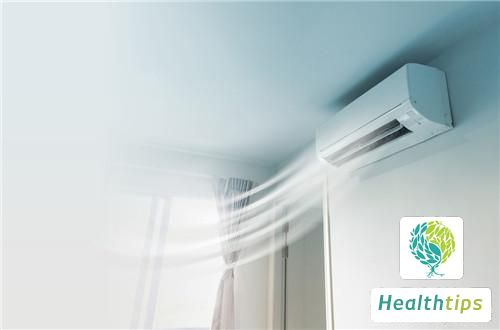Everyday use of air conditioning can increase the risk of developing respiratory diseases, affecting the function of the human body's sweat excretion system, leading to dry skin, and easily inducing rheumatic diseases. It can also cause a decline in immune system function, leading to symptoms such as dizziness, headache, nausea, and even vomiting. Furthermore, it can cause joint redness, swelling, pain, and distension, as well as gastrointestinal discomfort, abdominal pain, and diarrhea.

Hazard 1: Easy to Cause DysmenorrheaWomen are naturally sensitive to cold, and their constitution tends to be yin. During menstruation, their constitution may be weaker. Staying in an air-conditioned room for a prolonged period can cause the uterus to become cold, leading to stagnation of qi and blood, which can easily trigger dysmenorrhea. Women with a naturally cold constitution are more susceptible to this, so they should be cautious to avoid developing uterine cold.
Hazard 2: Joint and Muscle PainDuring summer, we tend to wear shorts and short-sleeved shirts to keep cool, exposing our knees, shoulders, and other joints directly to the cold air. Over time, this can lead to joint and muscle pain and even increase the risk of developing arthritis, cervical spondylosis, and scapulohumeral periarthritis.
Hazard 3: Airborne PathogensWhen the air conditioning is running in a room, it is typically on for an entire day or night. Not only does the cold air stimulate the body, but the air conditioning system may also disperse harmful substances. For individuals with chronic respiratory diseases, prolonged exposure to air conditioning can lead to symptoms such as persistent coughing or even asthma.
Hazard 4: Facial ParalysisWhen using air conditioning, we generally avoid directing the airflow directly at our faces. This is because constantly blowing cold air on the face can increase the risk of developing facial paralysis. Hot weather can cause increased sweating, leading to dilation of capillaries. When the facial blood vessels are exposed to cold air, they can contract, causing circulation issues and potentially leading to facial paralysis.
Hazard 5: Cold Pressor TestSuddenly entering a cold environment from a hot one can cause an increase in blood pressure, a phenomenon known as the "cold pressor test." The symptoms of this reaction are quite pronounced, with blood pressure rising approximately 20-30 mm Hg in a short period.
Hazard 6: Dry Eye SyndromeProlonged exposure to the cold air from an air conditioning unit can cause rapid evaporation of tears, leading to a decrease in tear production over time. This long-term reduction in tears can result in the development of dry eye syndrome.

